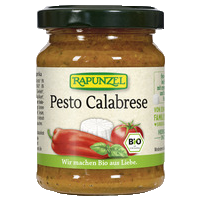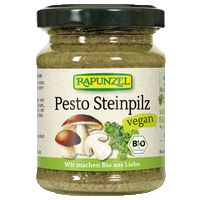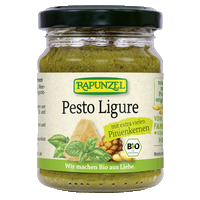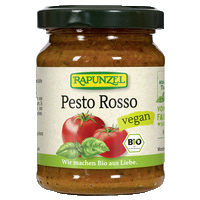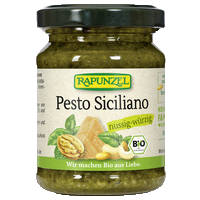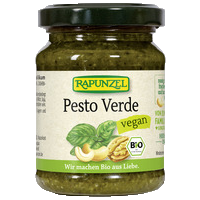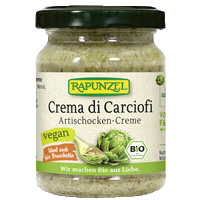Rapunzel Products Antipasti & spice pastes
A visit to Rapunzel's pesto makers
Pesto from an Italian manufactory
Rapunzel pesto comes from the Piedmont region in Italy - a region that is known for its exquisite cuisine. Rapunzel press officer Eva and photographer Justina visited our pesto makers Nadia and Matteo who manufacture finest Rapunzel pestos with their two daughters and 35 employees.
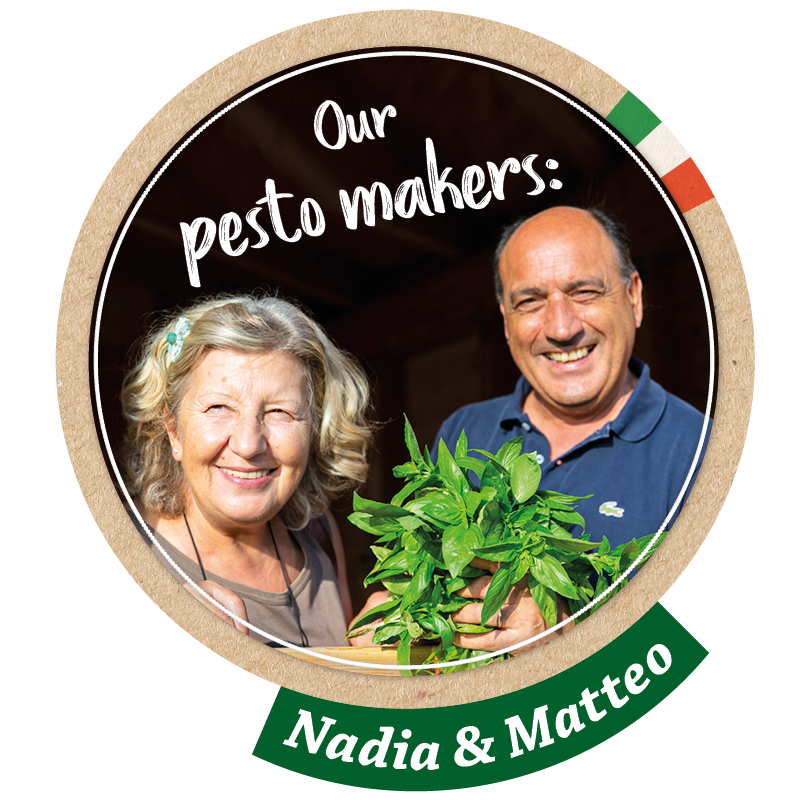
In order to catch the summer in a jar, she started to preserve vegetables and fruit many years ago. And then, one day, her passion became her profession and she and her husband Matteo decided to manufacture antipasti and pesto in organic quality.
Where it comes from
The pesto makers pay special attention to the origin and quality of their raw materials. Ingredients such as basil, pine nuts and walnuts, cheese and salt are grown and produced in Italy. The cashew nuts that are used for some recipes naturally come from other countries such as India.
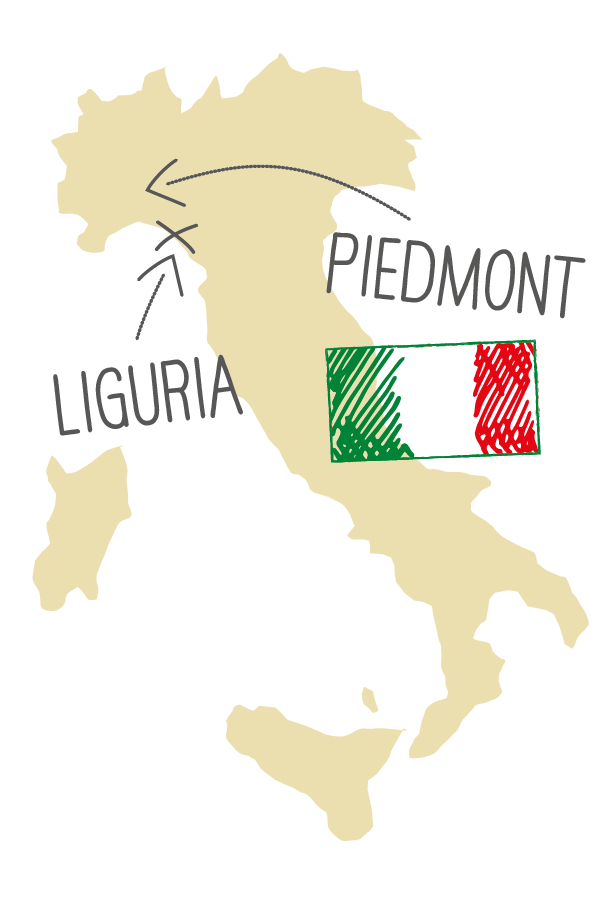
For the pestos with cheese, Parmesan or Pecorino are ground directly prior to processing. This way, the cheese keeps its full flavor.
The tomatoes for the red pestos such as the Pesto Calabrese, have matured in the Italian sun and are sun-dried.
A few more steps are necessary before the pesto is finished or the basil is ready to harvest. The basil is sown in April and the small basil plants are planted on the field in May. Only 30 days later, basil can be harvested for the first time.
Basil can be harvested four to five times per year. The last basil leaves are collected at the end of October.
Basil can be harvested four to five times per year. The last basil leaves are collected at the end of October.
For a sustainable organic cultivation, Luca, the agricultural engineer who works for Nadia and Matteo, grows basil in crop rotation. After the last harvest, the fields lie fallow for one year. In the next year they are sown with legumes, clover or mustard. The crop rotation improves soil fertility and creates the right base for basil cultivation.
Proprietary organic seeds for the best basil
Nadia and Matteo breed their seeds themselves. Organic farming is implemented with deepest conviction which is also reflected in the product quality.
Luca confirms: "All the problems that agriculture has to face have their origin in agriculture. Monocultures for example promote diseases. Therefore, organic farming is the only right way".
Luca confirms: "All the problems that agriculture has to face have their origin in agriculture. Monocultures for example promote diseases. Therefore, organic farming is the only right way".
Nadia affirms: "Yes, I totally agree with Luca. For me, the health of the soil, of the earth and our personal health are the most important things. If we would only have organic cultivation, everything would improve worldwide." At the same time, she knows that organic farming requires more work especially more manual labor. This shows us: Yes, also our pesto makers make organics with love and conviction.
The harvest
The most important ingredient of most pestos - the basil - comes from Liguria. Nadia and Matteo already tried to cultivate basil in the Piedmont region but its aroma did not convince them. That's why they own fields in Liguria which is also our next station.
Eva and Justina have to get up early in order to see the basil harvest, because the aromatic herb is harvested early in the morning in order to preserve its full aroma. Most and the best Italian basil is grown in Liguria. The typical basil aroma can already be smelled from a distance.
Lucia and his harvest hand Nicolas already started with the harvest. The freshly harvested basil gets further processed directly on the spot.
Lucia and his harvest hand Nicolas already started with the harvest. The freshly harvested basil gets further processed directly on the spot.
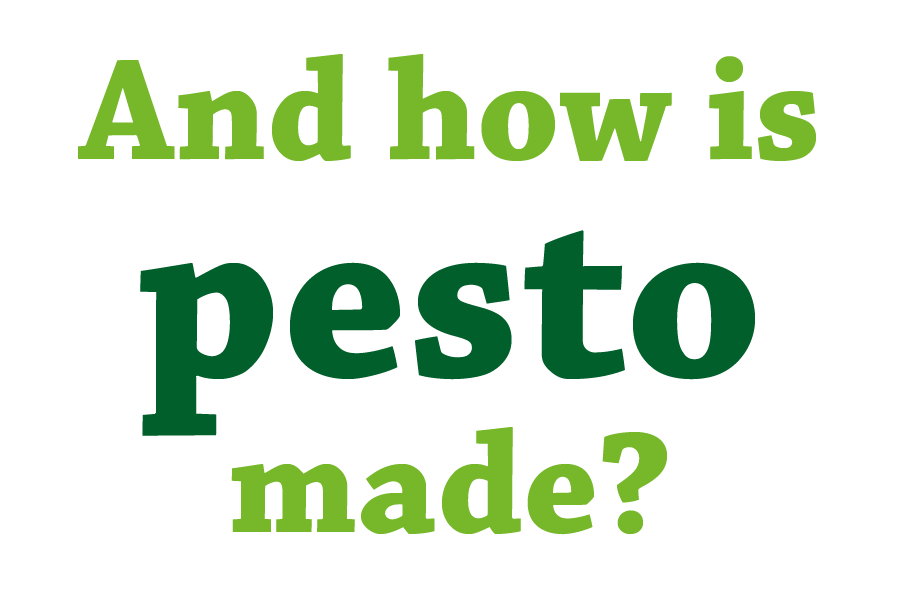

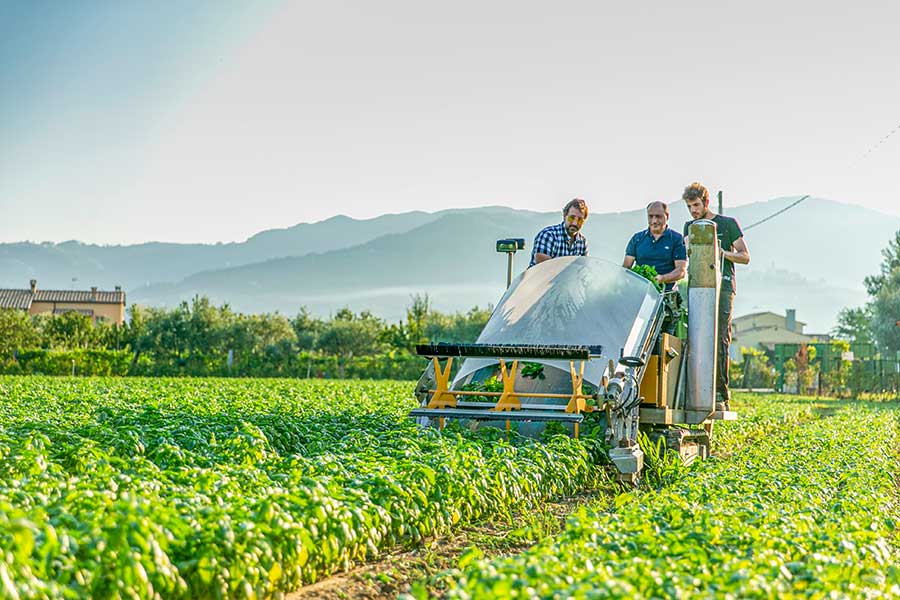
Matteo, Luca and Nicolas harvest the basil with a kind of cutter bars mower
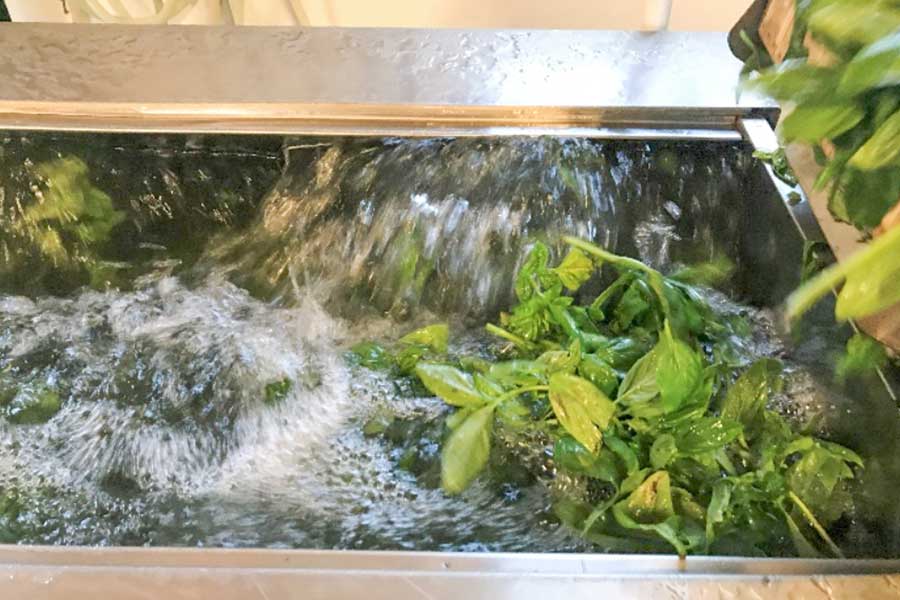
Directly after the harvest, the basil is thoroughly washed
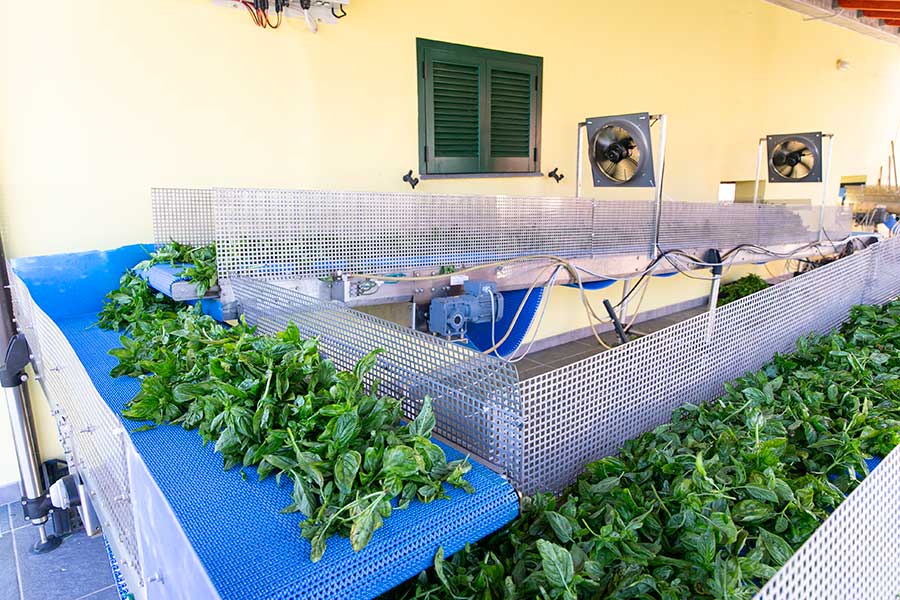
The basil is dried on a belt conveyor with ventilators
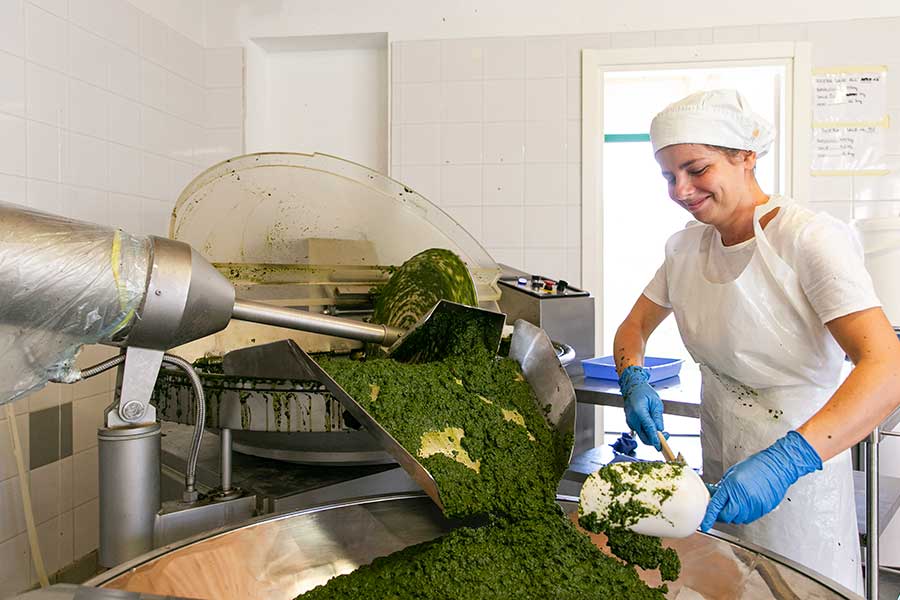
In a cutter, the basil is chopped and mixed with salt and extra virgin olive oil
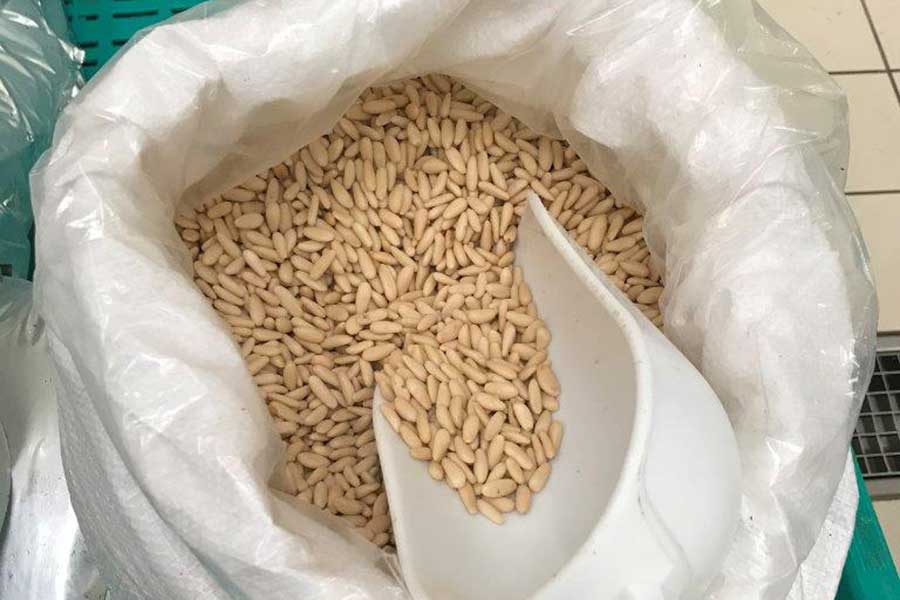
Pine nuts from Italy give the pesto a special flavor
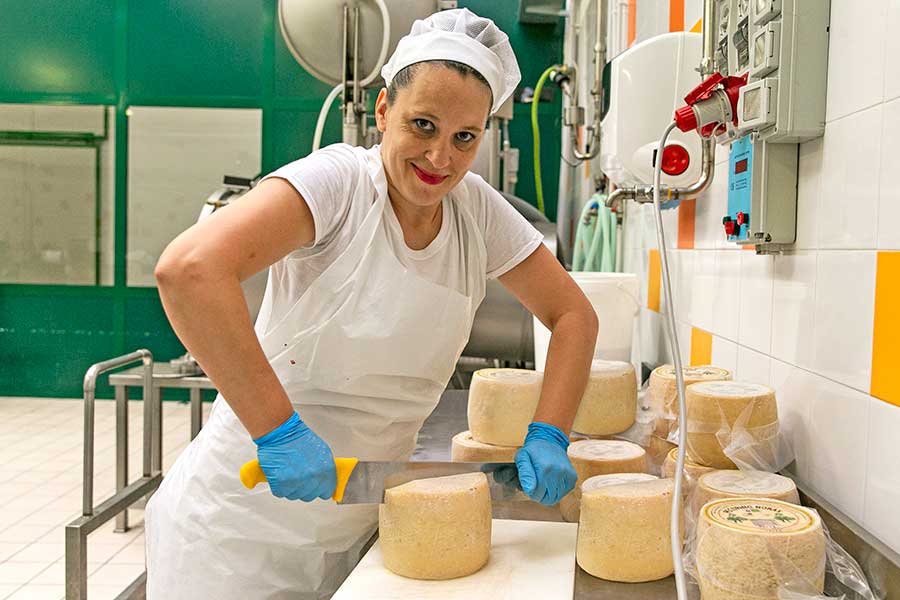
Michaela cuts and grinds Parmesan and Pecorino cheese directly prior to processing
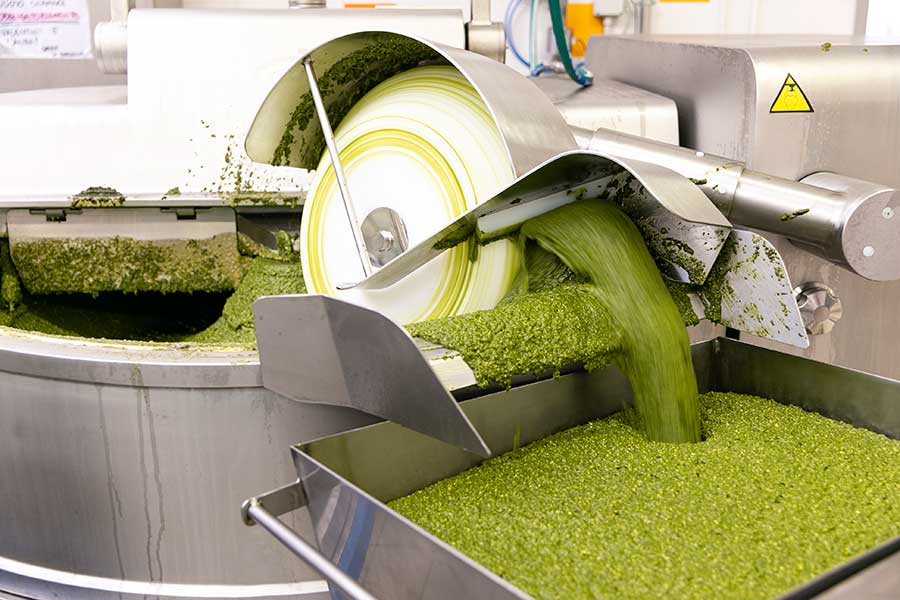
In a mixer all ingredients are mixed until the wanted consistency is obtained
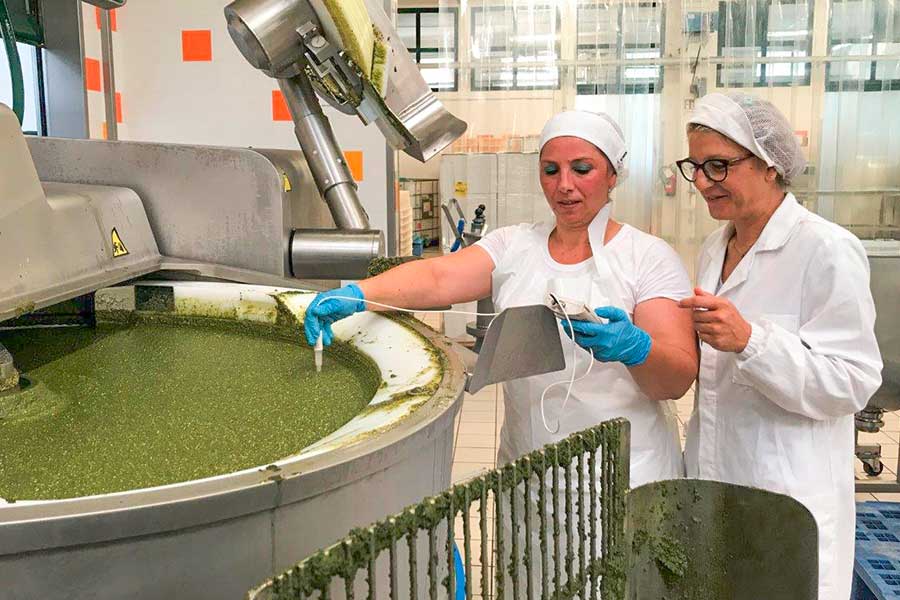
Barbara and Elisabeth check temperature and moisture content for a perfect quality
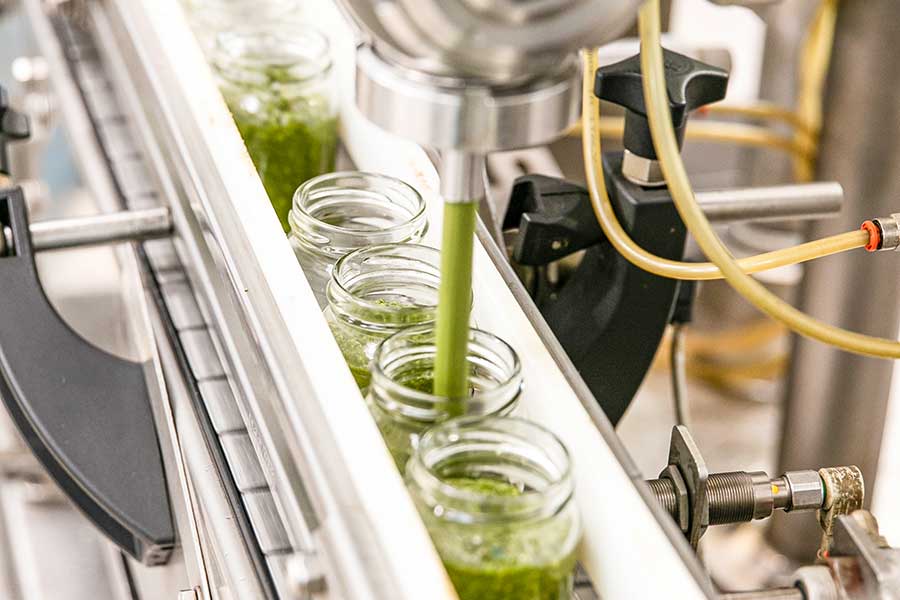
The finished pesto is immediately filled into jars
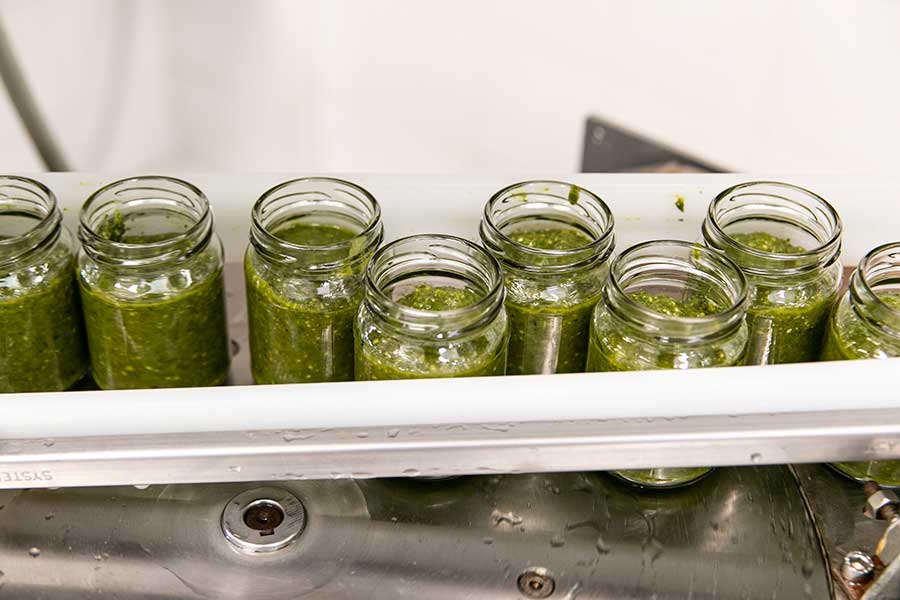
A dash of olive oil is added on top for special product protection
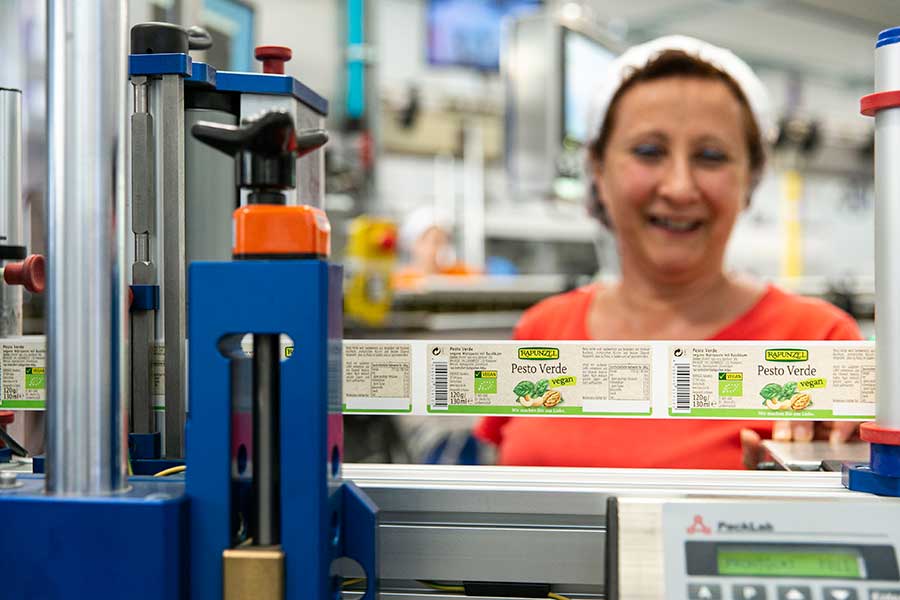
The filled jars are lidded and carefully pasteurized. In the end, the labels are glued onto the jars

